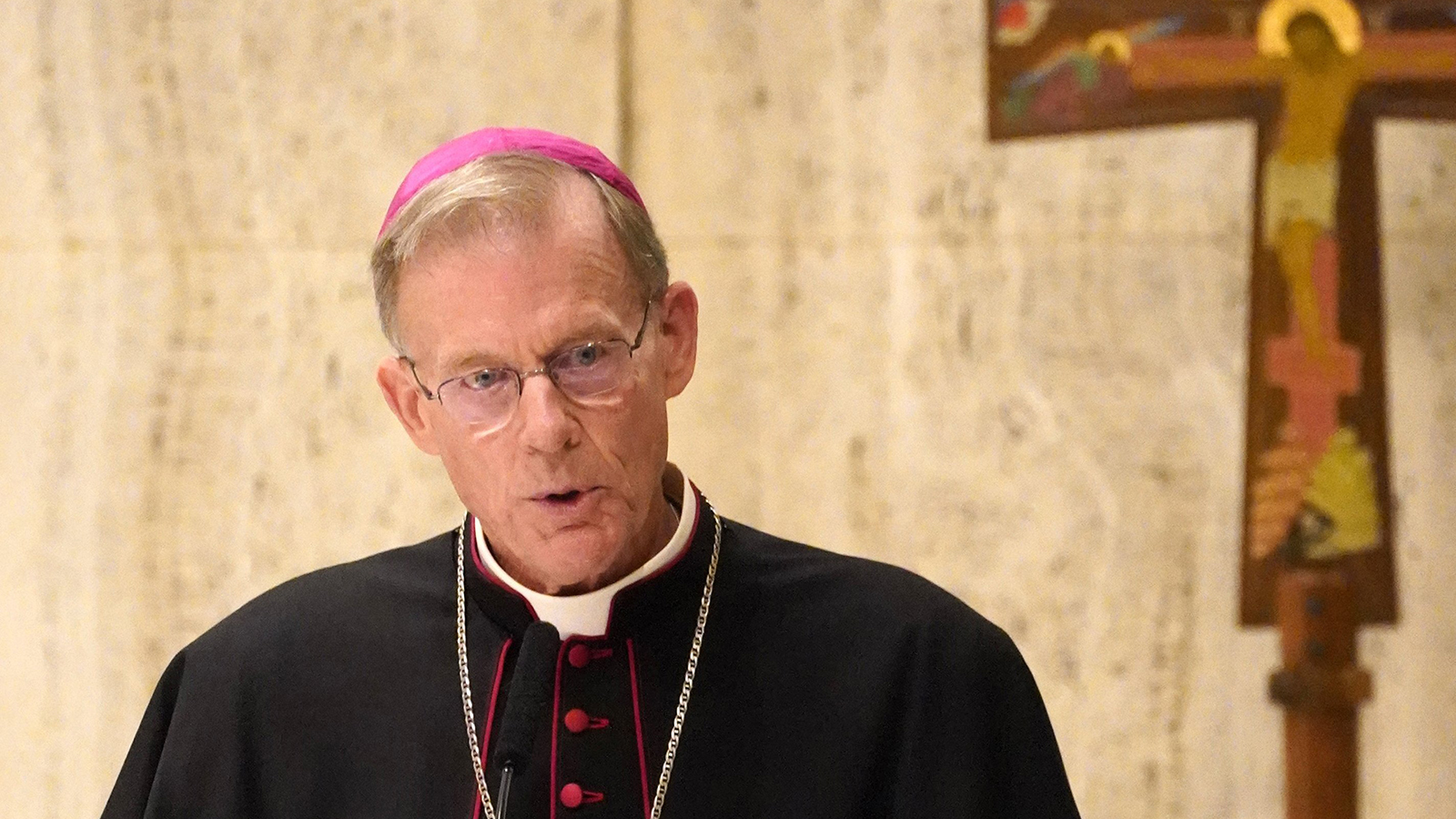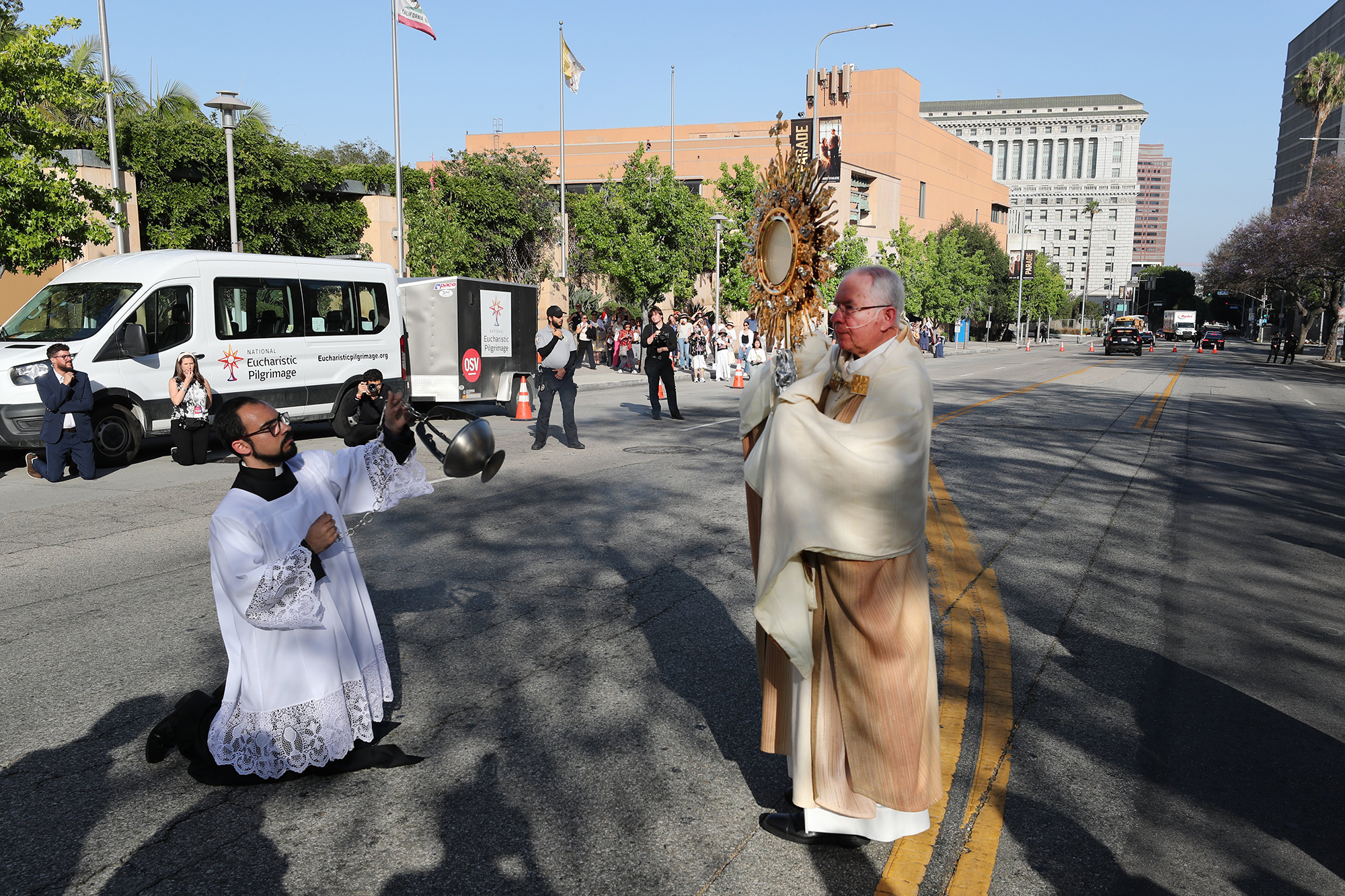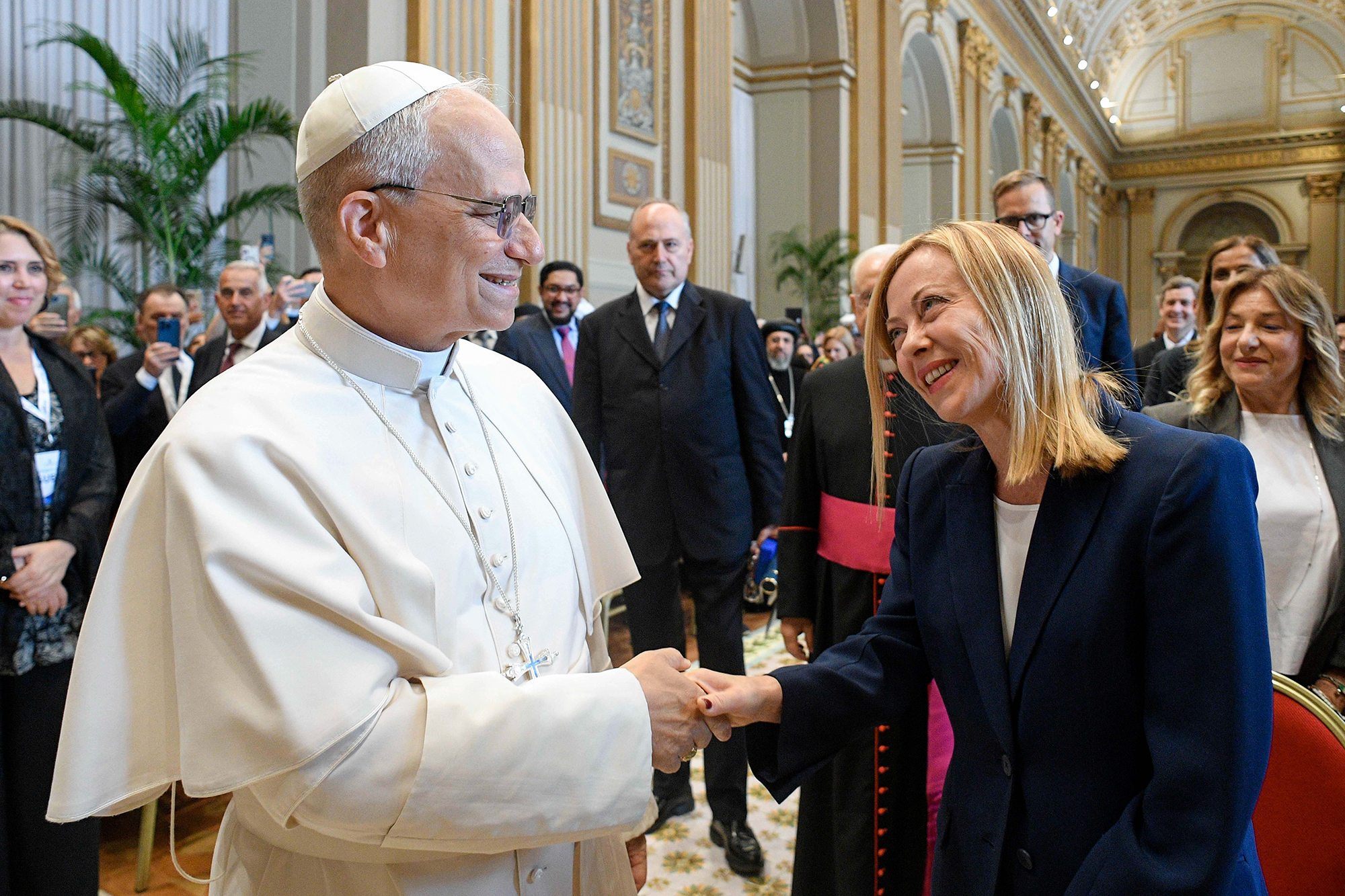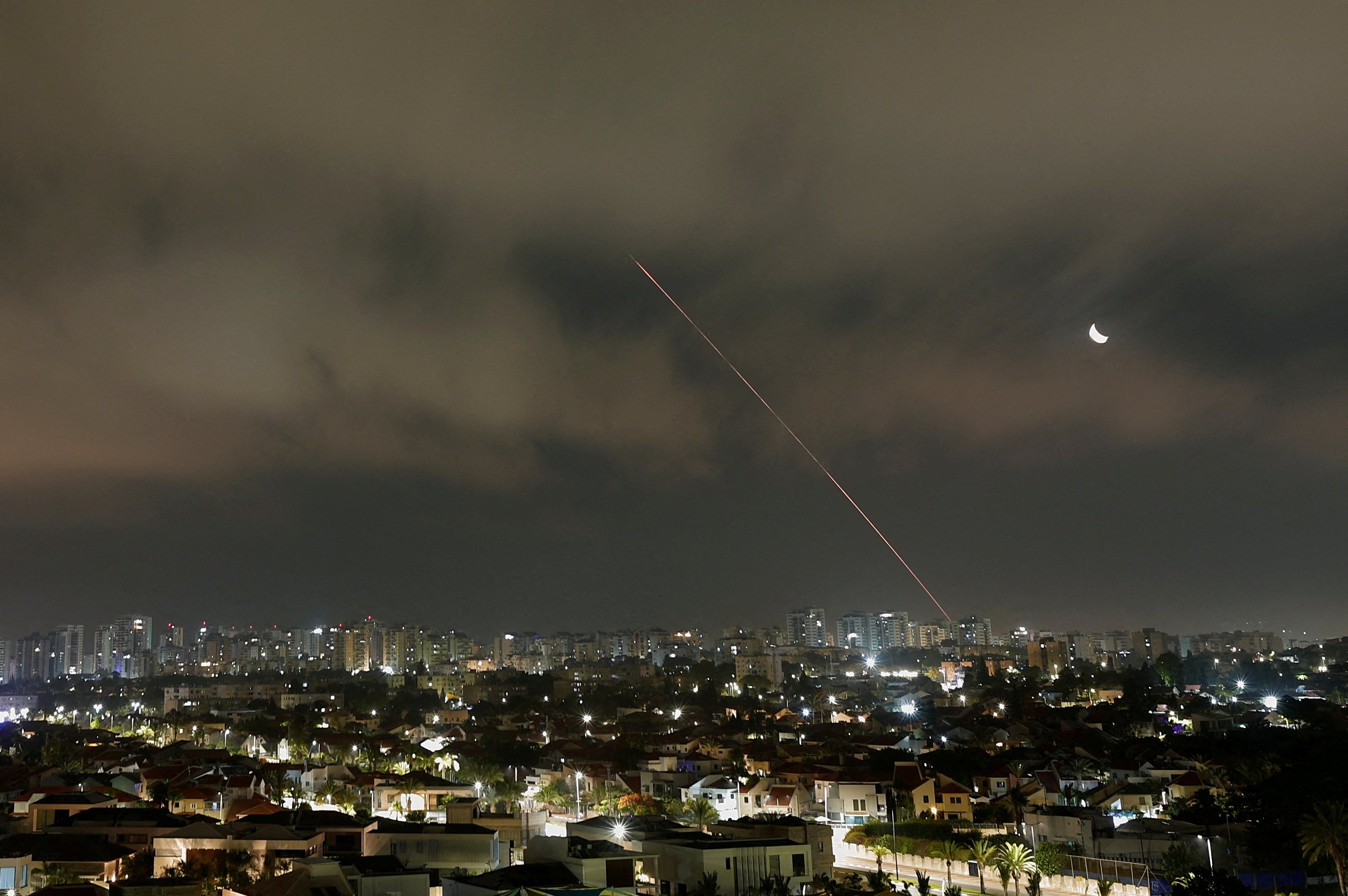World needs urgent political action to guide AI, pope tells G7
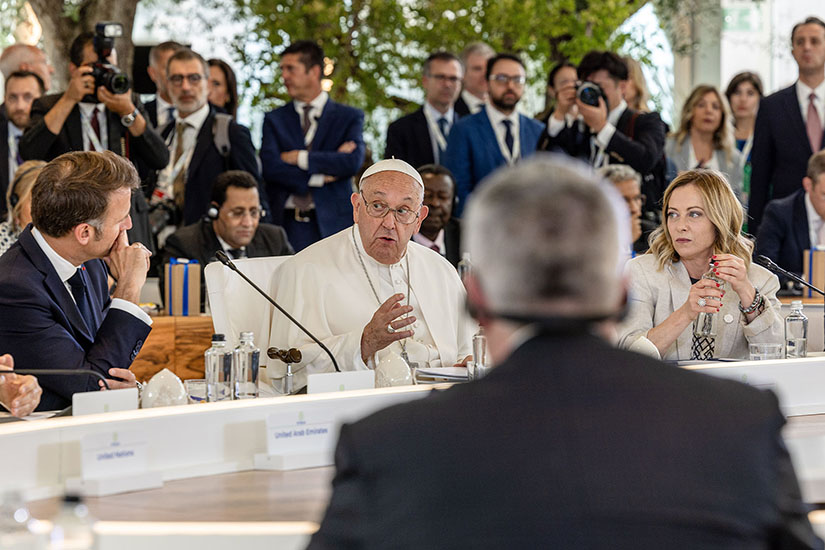
Pope also had private conversations with President Biden, other world leaders
VATICAN CITY — Political leaders have a responsibility to create the conditions necessary for artificial intelligence to be at the service of humanity and to help mitigate its risks, Pope Francis told world leaders.
“We cannot allow a tool as powerful and indispensable as artificial intelligence to reinforce such a (technocratic) paradigm, but rather, we must make artificial intelligence a bulwark” against the threat, he said in his address June 14 at the Group of Seven summit being held in southern Italy.
“This is precisely where political action is urgently needed,” he said.
Many people believe politics is “a distasteful word, often due to the mistakes, corruption and inefficiency of some politicians — not all of them, some. There are also attempts to discredit politics, to replace it with economics or to twist it to one ideology or another,” he said.
But the world cannot function without healthy politics, the pope said, and effective progress toward “universal fraternity and social peace” requires a sound political life.
The pope addressed leaders at the G7’s special “outreach” session dedicated to artificial intelligence. In addition to the G7 members — the United States, Japan, Canada, Germany, France, Italy and Great Britain — the forum included specially invited heads of state, including the leaders of Argentina, India and Brazil.
The G7 summit was being held in Borgo Egnazia in Puglia June 13-15 to discuss a series of global issues, such as migration, climate change and development in Africa, and the situation in the Middle East and Ukraine. The pope met privately with 10 heads of state and global leaders in bilateral meetings before and after his talk, including U.S. President Joe Biden and Ukrainian President Volodymyr Zelenskyy.
Because of time limits set for speakers during the outreach session, the pope read only a portion of his five-page speech, although the full text was made part of the official record. The Vatican provided a copy of the full text.
In his speech, the pope called artificial intelligence “an exciting and fearsome tool.” It could be used to expand access to knowledge to everyone, to advance scientific research rapidly and to give “demanding and arduous work to machines.”
“Yet at the same time, it could bring with it a greater injustice between advanced and developing nations or between dominant and oppressed social classes, raising the dangerous possibility that a ‘throwaway culture’ be preferred to a ‘culture of encounter,’” he said.
Like every tool and technology, he said, “the benefits or harm it will bring will depend on its use.”
While he called for the global community to find shared principles for a more ethical use of AI, Pope Francis also called for an outright ban of certain applications.
For example, he repeated his insistence that so-called “lethal autonomous weapons” be banned, saying “no machine should ever choose to take the life of a human being.”
Decision-making “must always be left to the human person,” he said. Human dignity itself depends on there being proper human control over the choices made by artificial intelligence programs.
The pope also cautioned, students especially, against “generative artificial intelligence,” which are “magnificent tools” and easily make available online “applications for composing a text or producing an image on any theme or subject.”
However, he said, these tools are not “generative,” in that they do not develop new analyses or concepts; they are merely “reinforcing” as they can only repeat what they find, giving it “an appealing form” and “without checking whether it contains errors or preconceptions.”
A White House press statement about the meeting with the pope said Biden and the pope talked about “the urgent need for an immediate cease-fire and a hostage deal to get the hostages home and address the critical humanitarian crisis in Gaza,” during their closed-door talks June 14.
“President Biden thanked Pope Francis for the Vatican’s work to address the humanitarian impacts of Russia’s war of aggression in Ukraine, including his efforts to help return kidnapped Ukrainian children to their families,” the statement said.
The U.S. president also expressed his deep appreciation for the pope’s “tireless advocacy for the poor and those suffering from persecution, the effects of climate change, and conflict around the world,” according to the White House.
The Vatican press office confirmed that the scheduled bilateral meetings took place June 14 and that each one lasted 10-15 minutes. However, it did not comment on Pope Francis’ encounters with the leaders.



